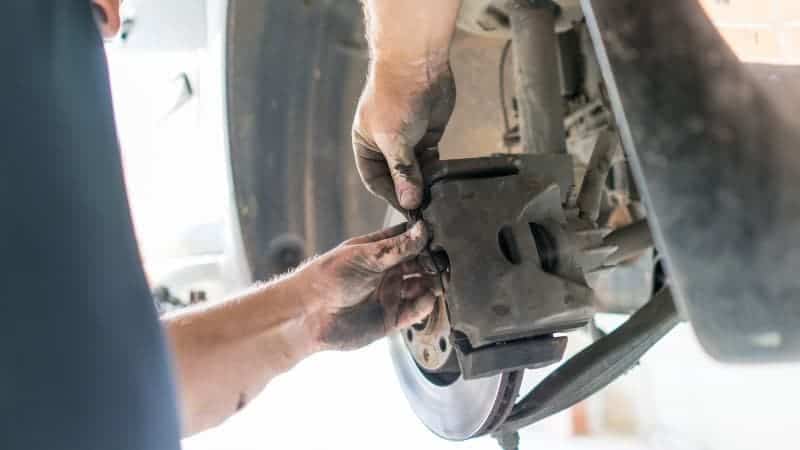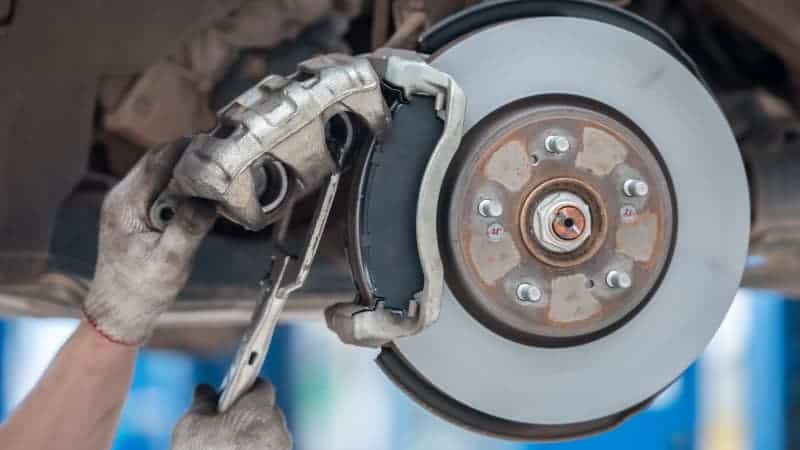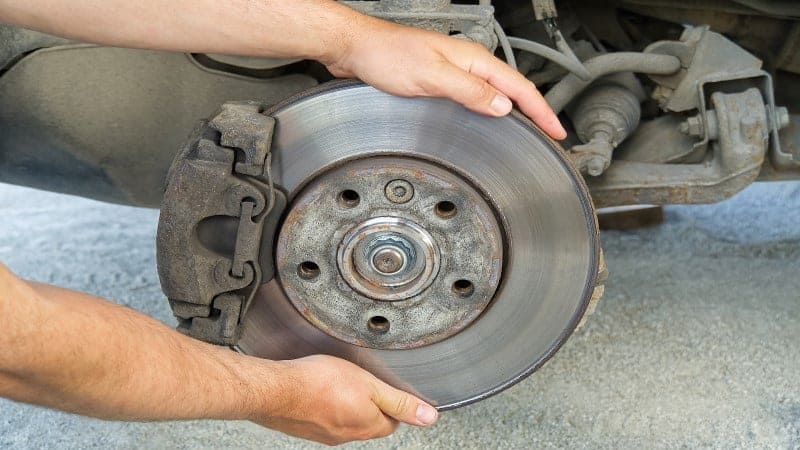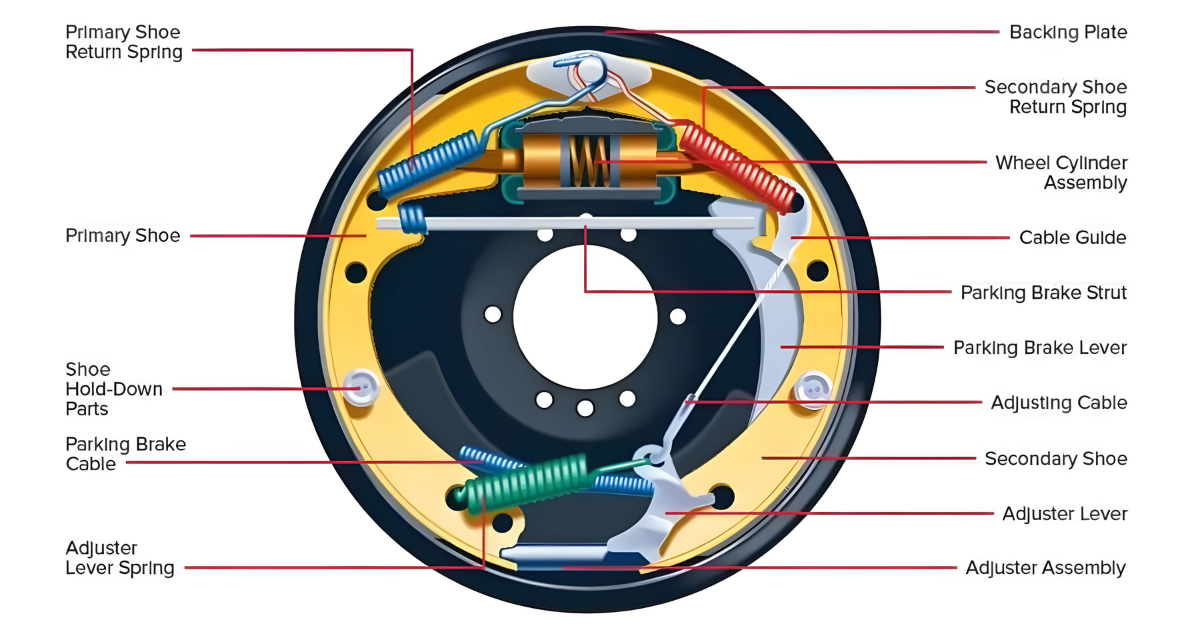When determining a car’s dependability and quality in the market, safety is a major factor. The brakes are the first thing that come to mind when discussing vehicle safety because they are responsible for stopping the vehicle. How quickly and smoothly the vehicle comes to a halt when you apply the brakes is a strong indicator of brake quality.
If the brake caliper sticks when it’s hot, it could lead to brake troubles. The car and its occupants could be severely damaged or perhaps killed if this happens. Here we’ll go over what causes a sticking brake caliper, what symptoms to look out for, and the best way to rectify the problem so that your braking power is back to normal.

The Brake Caliper Sticking: What Could Be the Reason?
What exactly is a brake caliper stick for, first of all? The brake caliper, which contains a brake pad, is supplied with compressed brake oil via pipes whenever the brake pedal is depressed.
So, the piston of the brake caliper presses down on the brake pad, bringing it into contact with the brake rotor, while the pressurized oil enters the caliper. When the brake pad makes high-velocity contact with the rotor, the vehicle comes to a halt. Under typical conditions, this will only occur if the brakes are in excellent working order.
A sticky brake caliper ensures that the brake pad makes contact with the brake rotor at all times, regardless of whether the brakes are applied or not. Why is this occurring? There are a number of possible causes for this. We won’t go into the root of the problem here.
Seizure of the slider pin and caliper piston are the three main causes of brake caliper sticking. The third one is a brake line obstruction. Nevertheless, while this is an accurate response, you will gain more by asking specific questions.
When the Brake Caliper Is Sticking, What Should You Do?

As we have seen, when the caliper becomes stuck, the piston is unable to return to its initial position upon braking. There will be constant contact between the brake pad and rotor as a result of this. To avoid any potential danger, it is advised that you fix your vehicle before getting back on the road. If your brake caliper becomes stuck, here’s an easy remedy to free it.
First things first, get a floor jack and some jack stands, then lift the vehicle. To take the wheels apart, use a wrench and a properly sized nut to turn the nuts counterclockwise, and then remove them by hand.
Next, locate the brake caliper by looking inside the brake pad and placing it over the brake rotor. After each use, spray the brake unit down with brake cleaner.
Apply a wrench and the correct socket nut to loosen the bolts that secure the brake caliper. Raise the caliper while avoiding kinks in the brake cables. Take off the brake pads by hand from inside the brake caliper.
After each use of the brakes, spray the inside of the caliper with the brake cleaner to remove any dust, grime, or buildup that may have accumulated inside. Once you’re done, use a rag to remove any remaining residue.
Lubricate the pins on the side of the caliper with white lithium grease. To make the caliper’s bolts slide more easily and smoothly, oil them. Set the brake caliper in the correct position and set the brake pad in its proper location. Finally, use a socket wrench to retighten the bolts that hold the caliper in place.
In the event that the problem lies with the rear brake caliper, repeat the procedure for the other side of the vehicle.
To test whether the issue has been resolved, test drive the vehicle once you have completed the instructions. For expert guidance or to have your calipers replaced, go to the closest authorized service center if they don’t.

Conclusion
No one likes to get behind the wheel of a vehicle with inadequate or nonexistent brakes, so this is an area that demands significant attention. Get him and his family to where they’re going safely. If you experience any of the following symptoms, it is crucial that you have your vehicle inspected and repaired without delay.




